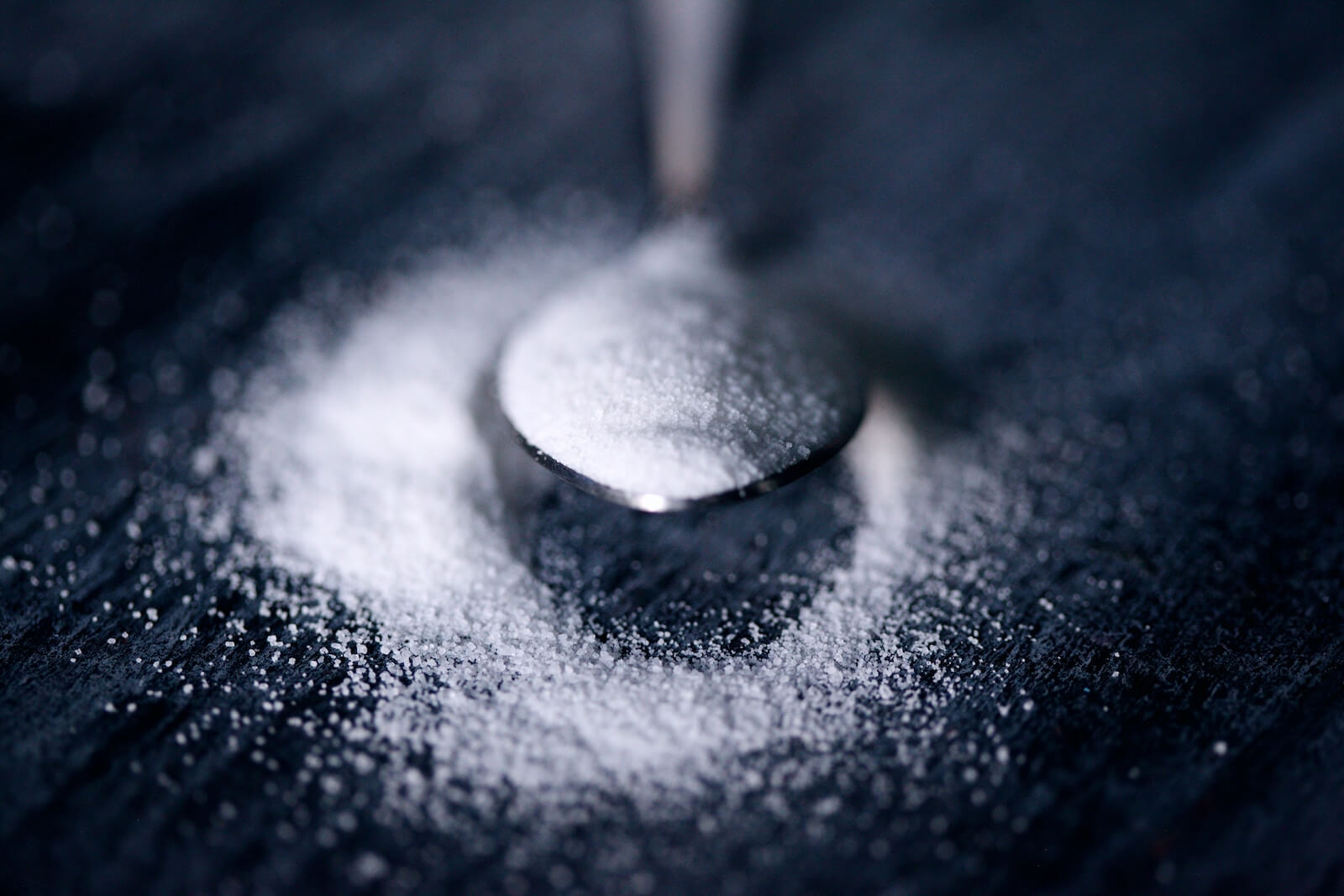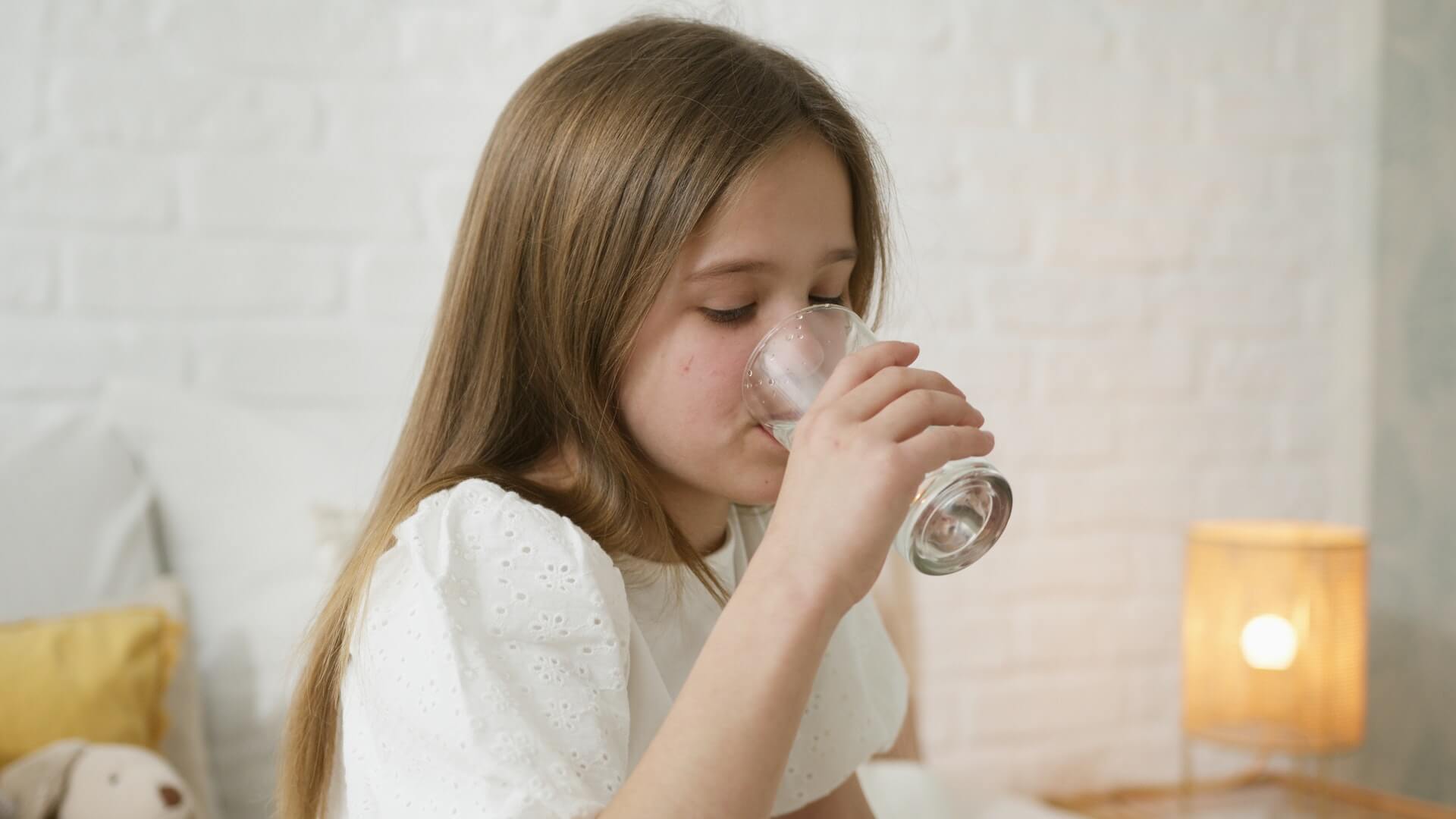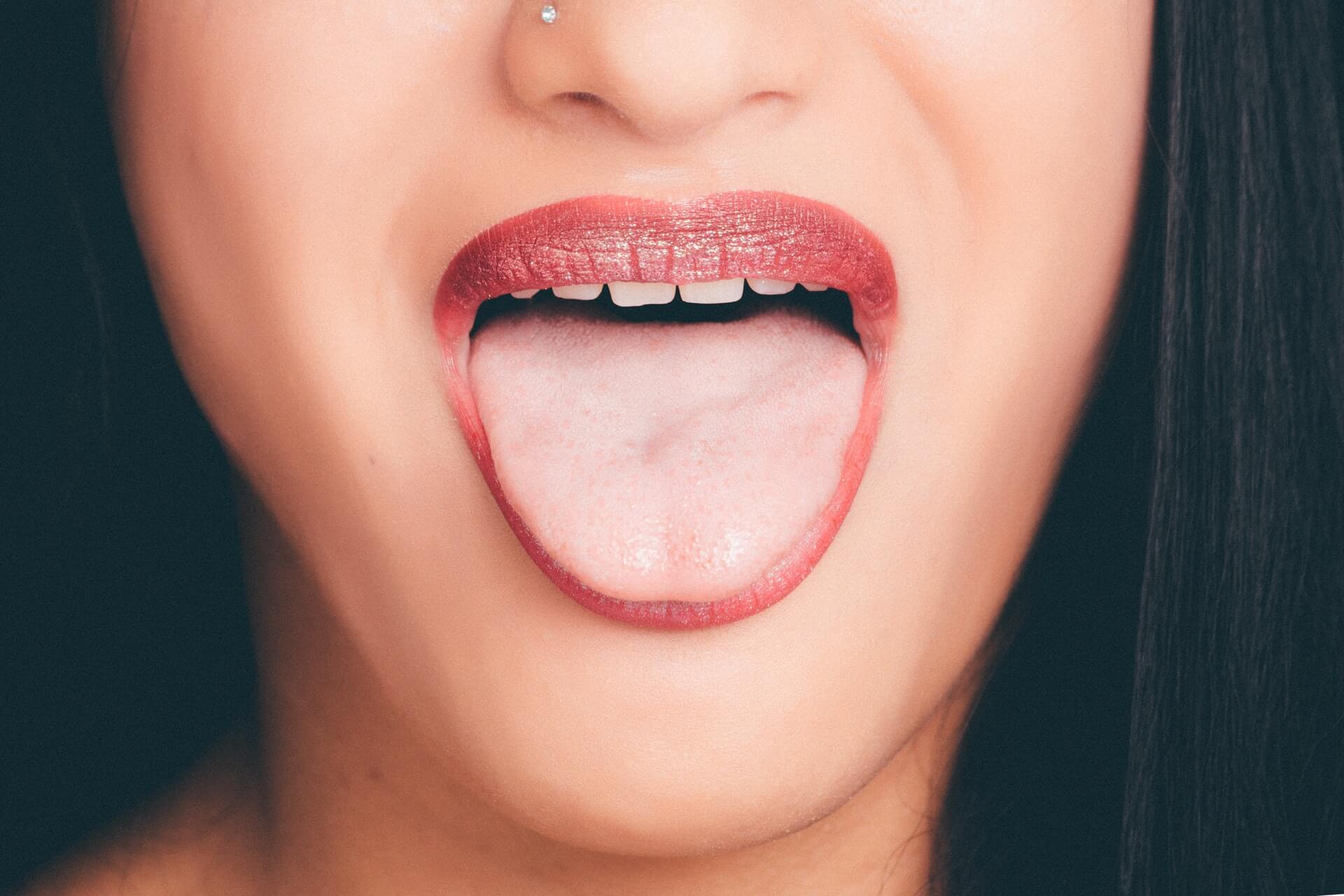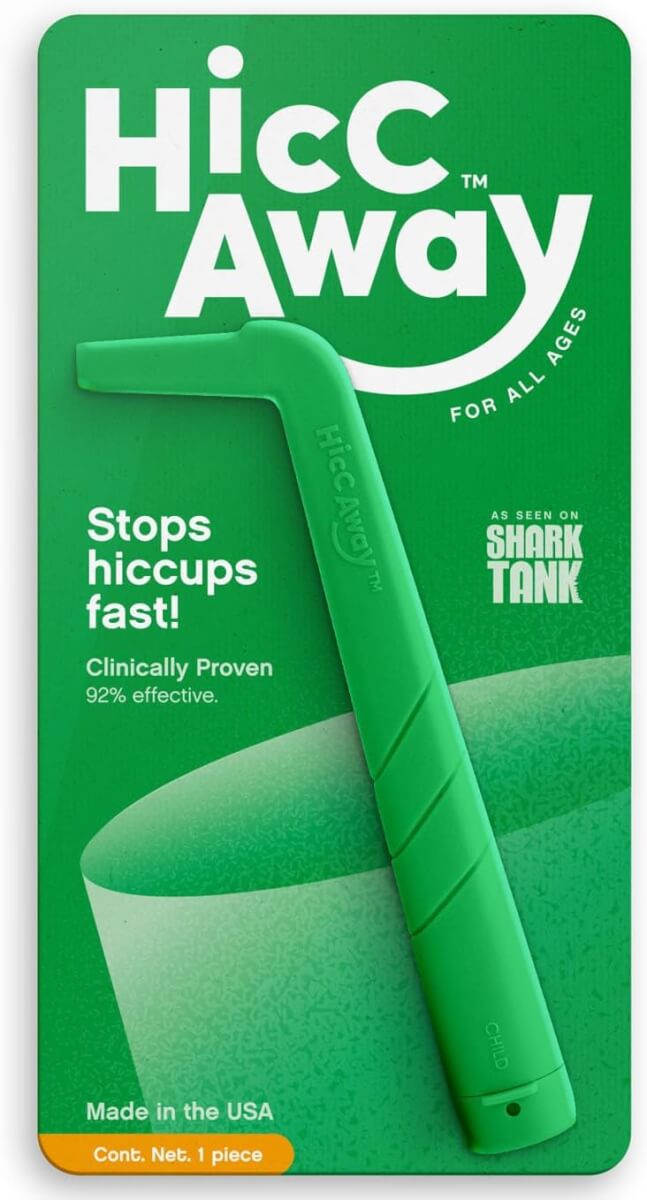At some point, everyone has been ambushed by the sudden and uninvited hiccup. The involuntary contraction of the diaphragm causes your vocal cords to close briefly, producing the telltale “hic” sound. While hiccups are usually short-lived, they often strike at inconvenient times. Many cures have been handed down for generations, ranging from quirky folk remedies — like thumping someone on the back — to more science-backed techniques, such as raising carbon dioxide levels in your blood. To help battle these annoying occurrences, StudyFinds has compiled a list of the best cures for hiccups.
What causes hiccups?
While it may be hard to figure out how to banish those pesky hiccups, it’s also hard to pinpoint what causes them. They tend to sneak up on you out of nowhere. Below are some common causes of why you experience these sneak attacks!
- Eating Too Fast or Too Much: When you eat too quickly or consume a large meal, your stomach expands rapidly. This can irritate the diaphragm, leading to hiccups.
- Drinking Carbonated Beverages or Alcohol: Carbonated drinks introduce gas into the stomach, which can distend it, while alcohol can irritate the diaphragm.
- Sudden Changes in Temperature: Drinking a hot beverage and then a cold one quickly can trigger hiccups. The sudden temperature change can affect nerves that control the diaphragm.
- Emotional Stress or Excitement: Strong emotions can trigger changes in breathing patterns, potentially leading to hiccups.
- Swallowing Air: This can happen when you chew gum, suck on candy, or eat too quickly, leading to stomach distension and hiccups.
Growing up, I was always told to drink from a glass upside-down (something some people still can’t figure out), have someone scare me, or hold my breath. While no “cure” works 100 percent of the time, there are self-treatments that seem to work more consistently. Researchers at The University of Texas Health Science Center in San Antonio created the first device designed to cure hiccups, according to a recent study. First known as FISST (forced inspiratory suction and swallow tool) and now known as the HiccAway Hiccup Straw, the tool successfully treated over 90 percent of hiccup cases much better than the traditional paper bag method!
Which hiccup remedies are the most prevalent? We’ve put together a list of the best hiccup cures that 12 medical experts believe work better than others. Some may be familiar, while others may seem a little unconventional. Did we miss one of your favorite remedies? Let us know in the comments below!
If your hiccups last longer than 48 hours, please contact your doctor.
➡️How Our “Best Of The Best” Lists Are Created
StudyFinds’ “Best of the Best” articles are put together with the idea of taking the work out of common consumer research. Ever find yourself searching for a product or service on Google and reading multiple reviews to find items listed across many of them? Our Best of the Best lists are created with that process in mind, with each item ranked by how frequently it appears on expert reviews or lists. With Best of the Best, you are getting consensus picks — making them truly the best of the best!

The List: Best Cures for Hiccups, According to Experts
1. HiccAway Hiccup Straw
The HiccAway Hiccup Straw is the first straw-like device ever designed to cure the hiccups. Developed by San Antonio doctor Ali Seifi, the tool was formerly known as a Forced Inspiratory Suction and Swallow Tool or FISST. The company behind the straw says it works by “activating the two main nerves responsible for the hiccups.” But does it do what it says it does? According to Prevention, users can’t get enough of it. “Yes! Scientists and TikTok users agree the HiccAway is an effective way to get rid of hiccups instantly.”
A research letter published in the journal JAMA showed that 90 percent of people who have used it favor it more than other home remedies. Many home remedies “lack clear, standardized instructions and can be cumbersome to perform, and there are few, if any, scientific studies of their effectiveness.” Essentially, people are unable to perform physical-type maneuvers to stop their hiccups.
One Amazon reviewer called the HiccAway Hiccup Straw one of the best things to ever happen to them, since they no longer suffer hiccups for hours on end. “It works within moments to stop the spasm, you can feel the cool wash through your chest and throat.”
2. Alter Your Breathing

There are many variations on this piece of advice to cure the hiccups. Healthline recommends those dealing with hiccups to breathe in for a count of five and then out for a count of five. You can try inhaling a big gulp of air and hold it for 10 to 20 seconds before breathing out slowly. Another potential remedy is using the good-old paper bag trick by putting a lunch bag over your mouth and nose and slowly breathe in and out. Make sure to never use a plastic bag while trying this.
Medical News Today also suggests something similar but slightly different. Their experts say people should try inhaling and holding your breath for 10 seconds and gradually release the air. Do this three to four times. If the hiccups still occur, try it again in 20 minutes.
WikiHow has another maneuver to use to alter your breathing. They say people should take a deep breath by inhaling slowly. After doing so, make sure to plug your nose, close your mouth and hold your breath. Start gently breathing out like you were filling up a balloon. Doing so triggers your diaphragm and muscles to think you’re breathing. Lastly, open your mouth and slowly exhale. Hopefully that stops your annoying hiccups.
3. Hug Your Knees

Many experts suggest “hugging your knees” to stop the vicious cycle of the hiccups. Verywell Health notes that pulling your knees up to your chest puts pressure on the diaphragm. Doing so may cause it to stop contracting. You should use this technique while lying on your back with your knees bent. Pull your knees toward your chest and “hold for up to a minute.”
Healthline also endorses this method. However, they suggest sitting down in a comfortable place, bringing your knees to your chest and leaning forward. “This also compresses the chest by putting pressure on the diaphragm.”
As far as how long you should do so, Your Tango recommends hugging your knees to your chest for two to three minutes.
4. Eat Certain Foods

Does a spoonful of sugar help the hiccups go away? According to Insider, it does! A study conducted in 1971 found that eating a small amount of granulated sugar cured the hiccups in 19 out of 20 patients — a whopping 95 percent. Swallowing sugar stimulates the vagus nerve, which stops hiccups.
Another method is eating a spoonful of peanut butter. Because both sugar and peanut butter don’t go down easily, they require suction to gradually go down your throat, CNN.com explains. The forceful suction activates the swallowing muscles and the vagus nerve.
Verywell Health says sucking on a lemon also stimulates the vagus nerve. WikiHow notes, “The sudden sour taste of the lemon can cause a similar startling reaction as someone scaring you.”
5. Drink Water Upside Down

This is a trick I always use, and it seems to work for me, but it does look a little silly. Dr. Erich Voigt, an otolaryngologist, tells Insider that he recommends to his hiccupping patients to drink a glass of water from the side of the glass where your fingers normally touch. Some people refer to this technique as drinking water “upside down.” While it’s not technically “upside-down,” you are drinking water from the upper rim of the glass and the tilting of your head does the trick.
According to Science Focus, cold drinks stimulate the vagus nerve through the stomach wall. Drinking a large glass of water without stopping interrupts your breathing long enough to affect your blood CO2 levels.
NYU Langone Health notes that drinking water while bending over a sink or turning your head upside down while drinking from the tap can distract your brain from the hiccups.
6. Pull Your Tongue or Press Your Eyeballs

Pulling on your tongue to stop the hiccups may seem odd, but Healthline swears by it. “Sticking out your tongue helps stimulate the nasopharynx (the uppermost part of the throat) and that may just stop hiccups, according to experts at the Harvard Medical School.”
WikiHow also recommends the “pulling your tongue” method. The site notes to slowly inhale and as you exhale, stick out your tongue. Using your fingers to gently pull your tongue forward triggers a pressure point at the back of your throat to stop hiccupping.
Over 100 years ago, scientists discovered that gently pressing on your eyeballs can stimulate the vagus nerve, stopping hiccups. Verywell Health writes, “Simply close your eyes and use your fingers to put gentle pressure on your eyeballs.”
If your hiccups last longer than 48 hours, please contact your doctor.
Sources:
- Healthline
- Verywell Health
- wikiHow
- Medical News Today
- Prevention
- Amazon
- NYU Langone Health
- Science Focus
- Insider
- Your Tango
- JAMA
- CNN.com
Note: This article was not paid for nor sponsored. StudyFinds is not connected to nor partnered with any of the brands mentioned and receives no compensation for its recommendations. This article may contain affiliate links in which we receive a commission if you make a purchase.

